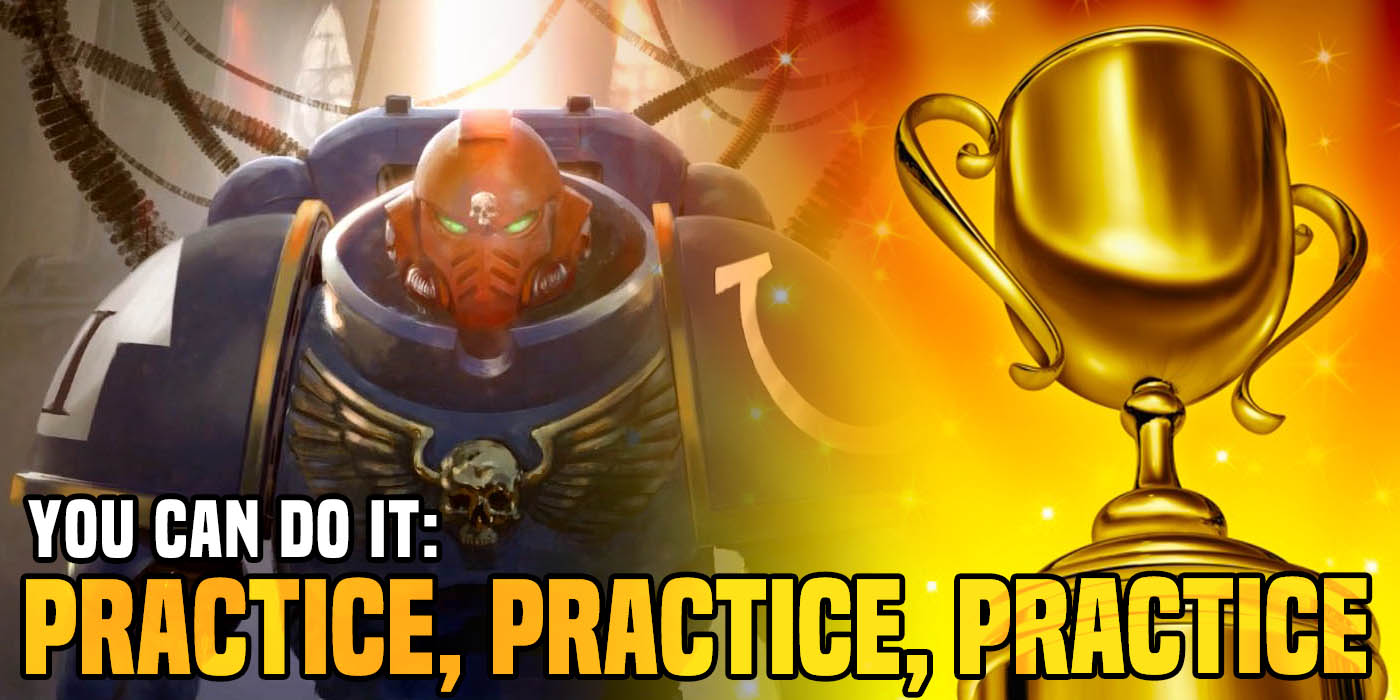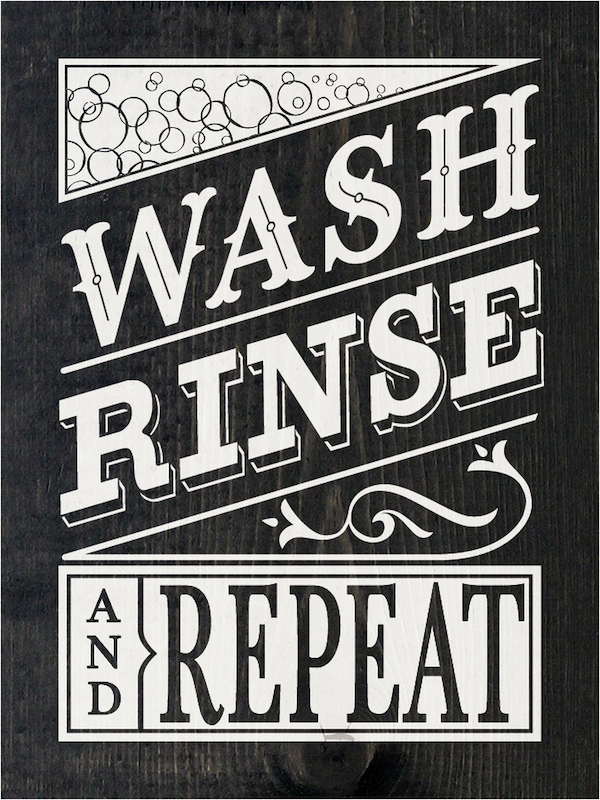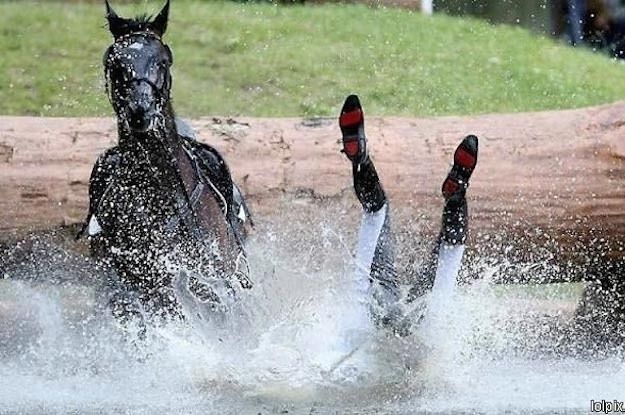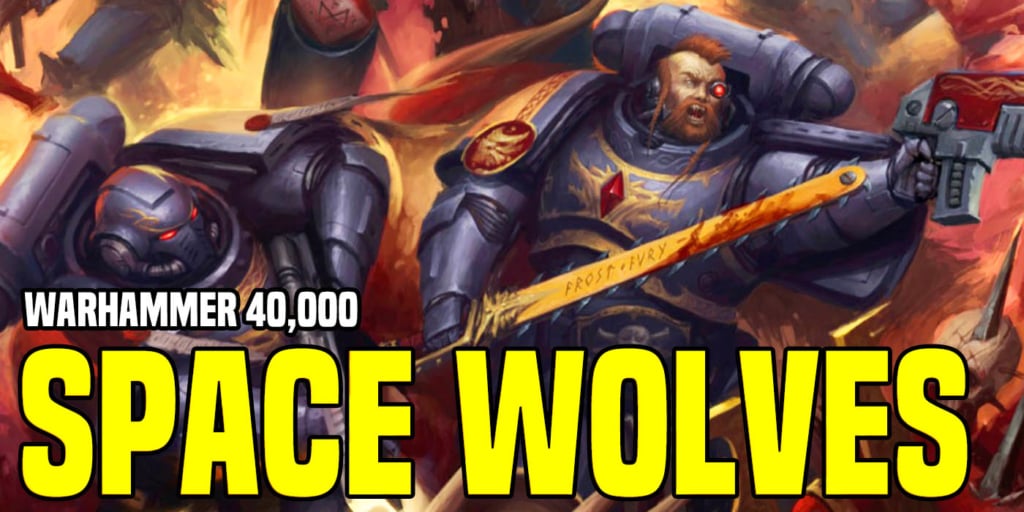Competitive 40K: Practice, Practice, Practice


We all have that dream of winning a large RTT or grand tournament. The best way to get there is to practice as much as possible.
Hey everybody! Adam, from TFG Radio here to discuss the wonderful meta world of competitive 40K.
If you play in the competitive scene then we all have that dream of winning a large RTT or grand tournament. Depending on the army you are playing, and your actual skill, it seems to happen a lot faster for some rather than others. Some of the issues are how some people learn, for example I learn better by doing something than just reading a manual or being taught in a classroom. I actually fall asleep if in a classroom. Another issue is the army you chose. If you begin playing with an army that allows for very few mistakes than you will be starting out losing most, if not all, your games, while starting out with a stronger army makes it much easier to correct mistakes or not even notice any mistakes that you made. For most players, the best way to really get a feel for your new army, or list build, is to practice as much as possible.
Wash, Rinse, Repeat
The phrase “practice makes perfect” really does apply. The more repetitions you have with your army, the better you will get in running the army. It will help you remember all the different warlord traits, stratagems, and other special rules unique to your army. It may not give you 100% memorization, but you will be much closer to it. Practicing more with your army will also help you get faster at playing the army. When you first start out with the army, it will take some time to be familiar with the army’s rules, how they move, what they can do, among other things. Constant practice with the army will help you speed along with your game play. As you get better, you may be forced to use a chess clock, if you aren’t already playing with one. Even without chess clock experience you should be able to play at a pretty fast pace because of your familiarity with your army. The only issue then would be if you suffer from “analysis paralysis” and take too long in making decisions. Practicing should help but sometimes there is no way to help people that have this issue.
Don’t Change Horses in Midstream
A common mistake people make when practicing is that they switch units, or even armies, after only a game or two. This is not enough time to really know if a unit is good or fits into the type of army you want to run. About 10-12 games is the optimal number. This allows you to put your units into as many situations as possible. Now you can’t really account for every possibility, but 10-12 games will give you a fair assessment on how the unit will perform in your army. If a unit is under performing, you switch it out and play another 10-12 games. You’ll soon get to a point where you are comfortable with the army and seem to be doing well with it. At this point it is almost on autopilot as you will already know what to do when faced with certain missions, deployment zones, opponents, etc.
Get In The Games
“How do you get so many games in?” you might be asking. There are a few ways to do this. Hopefully, if you read my last article, you are part of a team or club. This will give you access to more players than if you only went to RTTs or to your local store for a pick-up game. In addition, being in a club gives you access to a wider variety of armies and play styles. This will allow you to get a better idea of how your army, or certain units, do against certain matchups. It is helpful if you have strong players in the group and they are willing to teach you some of the trickier aspects of the game (that doesn’t involve cheating). Many players that try to get in a lot of games play only half a game. What you do is play out the first turn or two, discuss how the rest of the game would most likely play out, and then set up a new game, rinse and repeat. When setting up these new games you would change a few things like going second instead of first, use a different deployment, or even a different mission. In the span of one normal game you could fit about 3-4 “games”. This method is used by a lot of the better players in the competitive scene and is something everyone can do to get better.
~That’s all for this week. I hope you enjoyed the article. Let me know how you practice with your armies in the comments section below.










